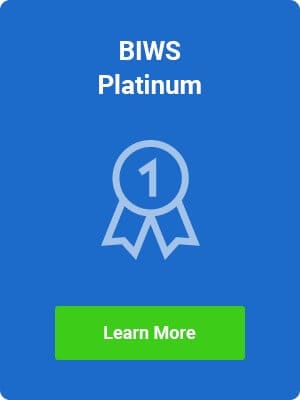Join 307,012+ Monthly Readers
Join 307,012+ Monthly Readers
Free Banker BlueprintInvestment Banking Interviews
What to Expect and How to Prepare for Investment Banking Interviews
Investment Banking Interviews 101
Investment banking interviews may seem daunting at first, but if you understand the process and the questions, you’ll see that they follow a predictable series of steps.
While it is challenging to pass interviews and win internship and job offers, with the right preparation and training, you can dramatically increase your chances.
Here are the key resources you’ll need to ace your interviews and land banking jobs:

The Investment Banking Interview Process
The overall process of completing interviews varies based on your location (e.g., North America vs. Europe) and the level of roles you’re applying to (e.g., Analyst vs. Associate).
If you’re in North America and you’re applying to Analyst roles, the investment banking interview process usually goes like this:
- Network months in advance and submit your application online.
- Complete a HireVue or other pre-recorded video interview, or possibly a phone interview with a human.
- Then, come into the bank’s office for a “Superday,” where you interview in-person with many bankers at all levels (Analyst through Managing Director).
If you get an offer, you’ll hear back quickly; if not, they may not say anything, or they may drag out the decision.
At the MBA level (for Associate roles), it’s similar, but banks tend to focus on on-campus recruitment at the top business schools.
If you’re applying outside of these formal processes – for example, you’re working at a Big 4 firm or valuation firm and you apply for full-time IB roles – then the process will be a series of interviews over a long period, with unpredictable timing and less reliance on HireVue and other automated assessments.
HireVue questions tend to be very generic (“What are your strengths and weaknesses? Why our bank? Why investment banking?”), so they should not require additional preparation.
For more, see our HireVue interview guide.
Real interviews are far more challenging because they could ask you anything, and they’ll judge not only your responses but also your body language and “cultural fit” with the group.
In Europe, and especially the U.K., this process is different because:
- You will have to complete online math, logic, and verbal tests, along with competency questions (written versions of “fit” questions); and
- Instead of a Superday, you will go to an assessment center in the final step.
At this “assessment center,” or “AC,” you will complete exercises such as group presentations, report writing, role-playing, and e-tray/in-tray (to simulate your responses to emails) in addition to the standard interviews.
ACs test your ability to perform in real life more effectively, but you’ll have to spend additional time preparing for them because the tasks are different from those in standard interviews.
In other regions, such as Asia and Australia, the interview process is somewhere in between these two.
We cover the details of this process in the articles on EMEA recruitment, assessment centers, and competency questions.
Common Investment Banking Interview Questions
There are four main categories of interview questions in investment banking interviews, and you must be able to answer each one confidently. They are:
- Category 1: Telling Your Story
- Category 2: “Fit” Questions
- Category 3: Deals, Markets, and Companies
- Category 4: Technical Questions and Answers
Our comprehensive article describes each of these in detail, but the quick summaries are below:

How to Tell Your Story in Interviews
There is only one question in this category, but it may be phrased in different ways:
- “Tell me about yourself.”
- “Walk me through your resume.”
- “Why are you here today?”
The interviewer wants to understand how your previous academic and work experience fits into the role you are applying for, and how this role fits into your long-term career plans.
If you have time for nothing else before your interview, you must outline a 200-300-word pitch to answer this question. For tips on how to do this, see our article on how to answer the “Walk me through your resume” question.

Investment Banking “Fit” Questions
In the “fit” category, bankers will ask questions about your strengths and weakness, your ability to work in and lead teams, and how much you know about the group and firm.
All questions that are not related to your story, deal/market/company discussions, and technical concepts are in this category.
Rather than trying to memorize hundreds of prepared answers, we recommend following the advice in our article on Investment Banking Fit Questions.
In short, you should prepare 3 “short stories” to answer most of these questions, select 3 strengths and 3 weaknesses, and then prepare to address your top 3 “real” weaknesses in interviews.

Questions about Deals, Markets, and Companies
This next question category determines your level of interest in the markets and current events, such as significant deals and new companies.
Anyone can say they’re “interested in working on deals,” but few people can walk through the in’s and out’s of a recent deal in detail and give their opinion of it.
These questions tend to be more important for experienced candidates interviewing for lateral roles, but they still come up for students applying for internship and post-graduation full-time roles.
Please see our articles on how to discuss recent deals and how to prepare a deal sheet for more on these topics.

Technical Interview Questions and Answers
Investment banks now expect candidates to possess detailed technical knowledge of accounting, finance, valuation, and M&A and LBO modeling.
There are no “shortcuts” to mastering these topics; you need to put in the time to read, learn, and practice, or you won’t stand a chance against candidates who have.
We cover these key technical topics in our Investment Banking Interview Guide, and you can also find good introductions to them in our YouTube Channel:

Investment Banking Interview Preparation Courses
Investment banking has become a highly competitive and sought-after field.
You only get one shot to make a great first impression in an interview, and there are no “do-overs” if you mess up or state something incorrectly.
That’s why many future investment bankers invest in specialized courses and training to help them pass their interviews with flying colors:
- A good starting point is our flagship Investment Banking Interview Guide, which has hundreds of questions and answers, practice case studies, and detailed guidance on all the aspects of interviews described above.
- The Core Financial Modeling course is good preparation for both interviews and internships, as it focuses on the concepts and shorter case studies.
- The BIWS Premium package is ideal for “on the job” prep since it bundles the Core Financial Modeling course with Excel and PowerPoint training.
- And many of our customers will save money and get the very best in all aspects of investment banking training by enrolling in BIWS Platinum – our entire collection of courses.
Completing these courses will help you win interviews and job offers for roles that pay $150K+ and position you for success in investment banking.
Finally, while our courses provide a great framework and instructions for getting into the industry, you might also be looking for more personalized assistance.
So, if you’re after 1-on-1 coaching for networking, interviews, and the entire job search process, check out Wall Street Mastermind.
They’ve worked with over 1,000 students to help them secure high-paying investment banking jobs out of school, and their coaches include a former Global Head of Recruiting at three different large banks.
They provide personalized, hands-on guidance through the entire networking and interview process – and they have a great track record of results for their clients.









